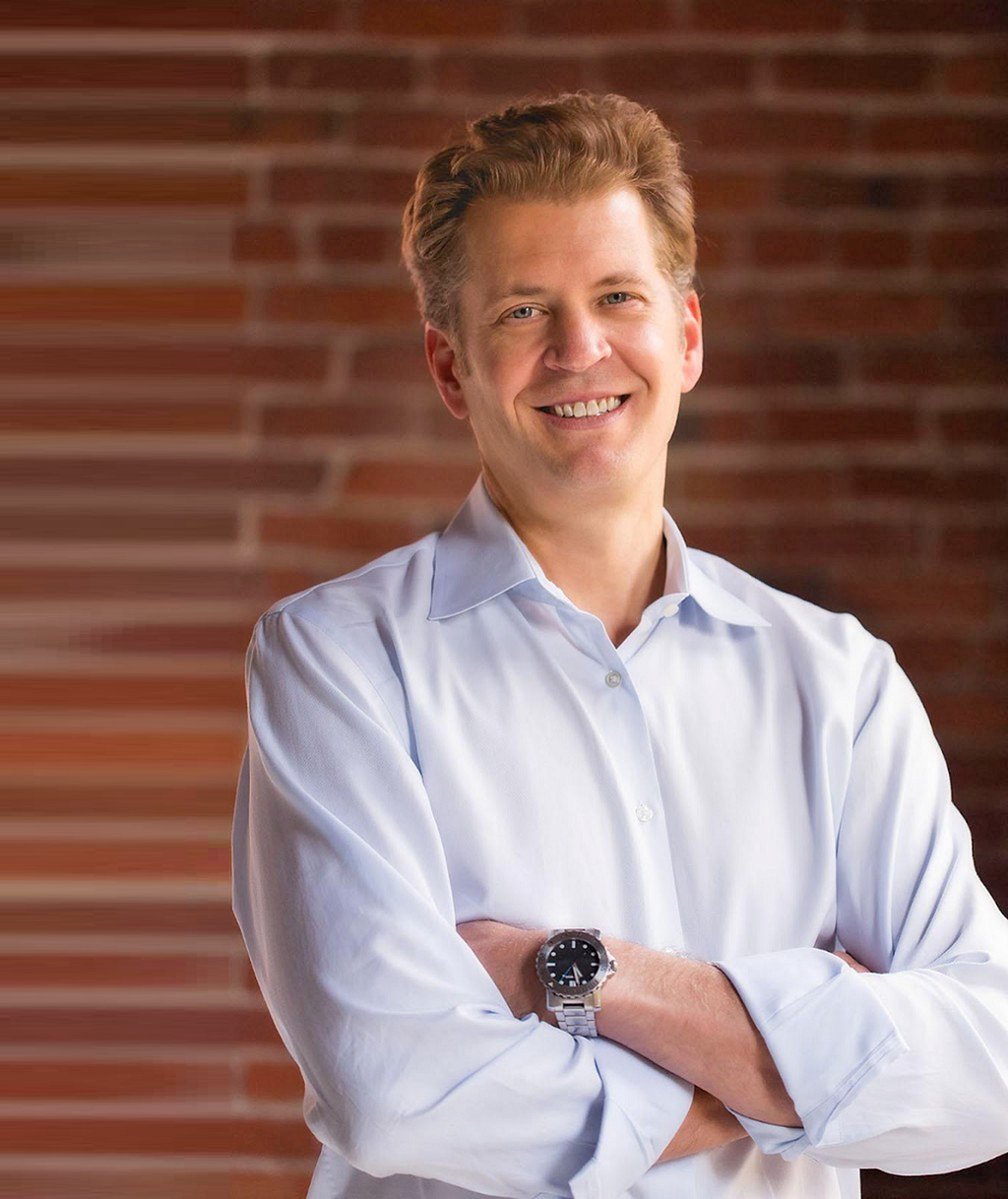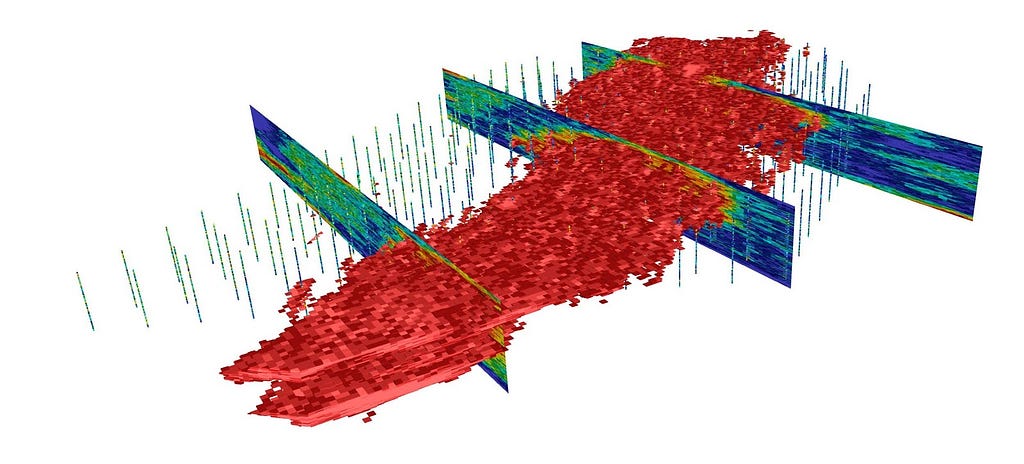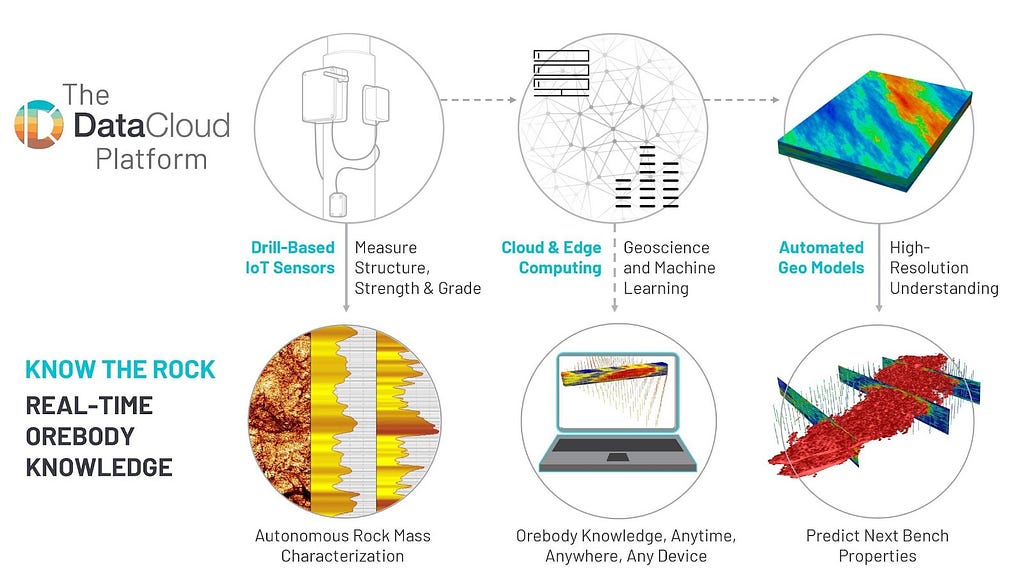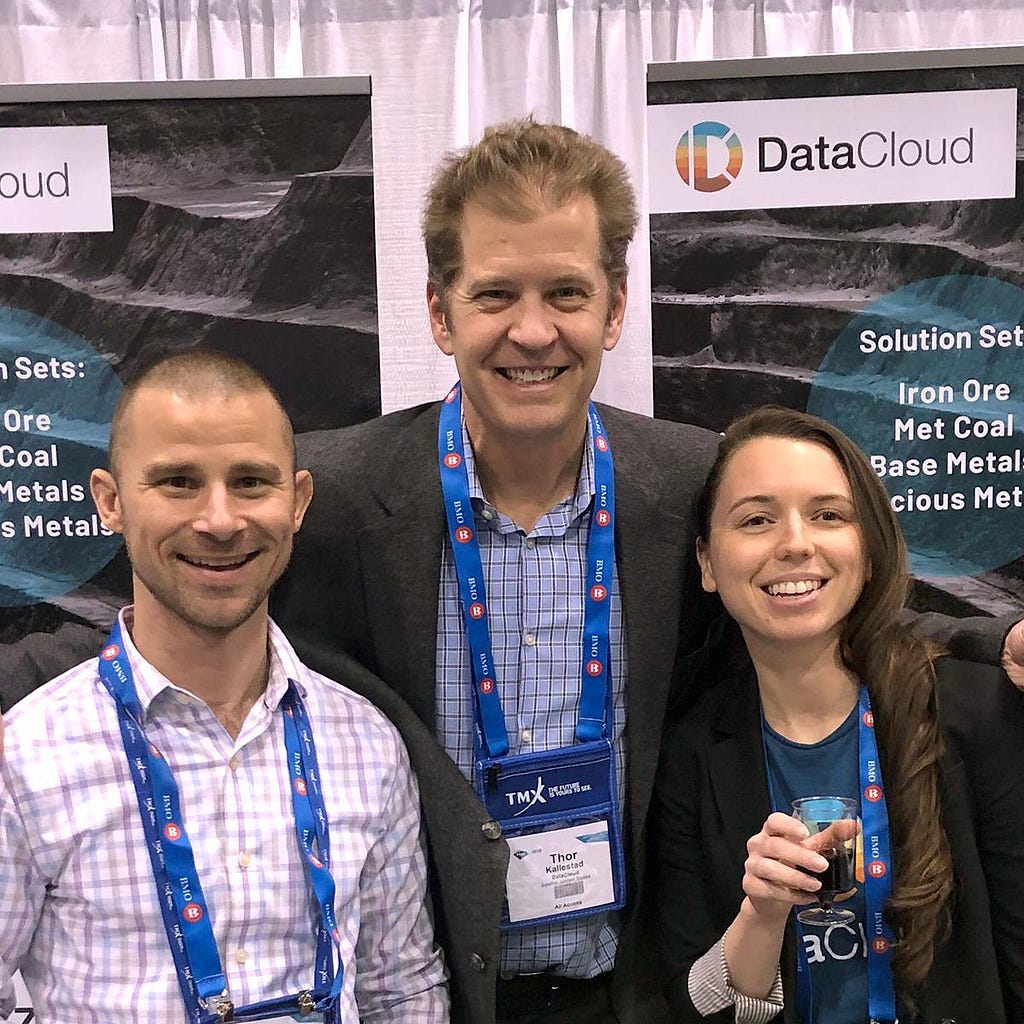The Future is Now: “Now we can increase mining efficiency, to eventually shift our reliance off oil and gas” with Thor Kallestad of DataCloud

A more data-driven efficiency in mining is the only way the industry will be able to keep up with the demand in switching society’s reliance off oil and gas.
I had the pleasure of interviewing Thor Kallestad. Thor is a former Schlumberger Anadrill Field Engineer turned founder and CEO of DataCloud; a company that improves mining productivity with high-resolution, real-time rock mass characterization services. Upon leaving Schlumberger, Thor worked as a drill site manager and led corporate development and commercial efforts for an E&P startup. He has a Petroleum Engineering Diploma from Heriot-Watt University and an MBA from the University of California, Berkeley.
Thank you so much for joining us! Can you tell us a story about what brought you to this specific career path?
Like many of the the DataCloud team members I started my career in the oil and gas industry. I saw seismic technology being used there with great success to increase production and improve ultimate recoveries. When we realized that no one was providing this level of high-resolution, real-time information in mining, we saw the opportunity to use our experience and knowledge to create and introduce something truly game-changing for the field. The timing was also perfect; it was becoming financially and technologically feasible to modify the technology and make it work for a cost and at a speed that the mining industry would require.
Can you share the most interesting story that happened to you since you began your career?
I believe that luck and networking are a big part of getting ahead in life. The mining industry is quite large, yet somehow small at the same time, you tend to run into big players more often than you’d think. Recently, I was telling a good friend of mine from grad school that we were doing some work for a certain company and turns out he knows the owners from childhood. When those big connections happen from simply talking to someone you already know about something you truly believe in, it makes things more than interesting; it makes them feel as if you were destined to be doing what you’re doing.
Can you tell us about the “Bleeding edge” technological breakthroughs that you are working on? How do you think that will help people?
Plenty of companies help mines measure geology down blast holes. What’s different about DataCloud is that we are the first to develop a technology to provide direct measurements for rock mass evaluation at such a high-resolution and within a time frame that enables mining operations to improve productivity at great strides. We do this by requiring no extra steps of our clients; no wireline logging trucks or surface seismic efforts are required. During their drill and blast operations we deliver a superior orebody understanding for efficient mine planning, and an increase in throughput and recovery. Utilizing seismic while drilling sensors and cloud-based geostatistic data processing, we have been able to equip mines with real-time, high-resolution rock insights to unlock Industry 4.0 for mining clients.
How do you think this might change the world?
The rock mass characterization that the DataCloud Platform provides mine planners and geologists the tools to move past tedious excel-based math, and low resolution geomodels, to supervising the autonomous generation of high-resolution orebody models. They will have more time to focus on the bigger picture. We are also providing the infrastructure for additional advancements in measurements to be easily implemented. A more data-driven efficiency in mining is the only way the industry will be able to keep up with the demand in switching society’s reliance off oil and gas.

Keeping “Black Mirror” in mind can you see any potential drawbacks about this technology that people should think more deeply about?
I could see a future in which the optimization of data collection and processing has become so automated we’ve forgotten all the handwritten, time consuming, inefficient analysis of data, of trying to understand the rock. It could get a bit science fiction-y if the artificial intelligence and machine learning we’ve implemented slowly became sentient and started strategically hiding resources to control where we conduct mining operations for what ‘it’ believed was best for Earth. Don’t’ worry, we did not name our technology HAL.
Was there a “tipping point” that led you to this breakthrough? Can you tell us that story?
When we started to develop a technology that looked similar to what we knew in oil and gas; one that involved geophones, arrays, and measuring arrivals, waveforms and transit times. We faced the music quickly as there was no pragmatic way to deploy geophones in a drill and blast setting. This is what led us to instead develop our own proprietary IoT seismic while drilling hardware and software that gets much of the same acoustic information, but it does so from interpreting vibrations in the drill steel, rather than by relying on geophones. In both cases, the drill bit remains the sound source, but with a sensor on the drill, they can measure lithology changes while drilling blast holes, a major part of their operations already taking place; adding no steps to workflow.
What do you need to lead this technology to widespread adoption?
The industry is very cautious about implementing new technology, and frankly, does not have a rich history of innovation. But that is changing. Proof of measurement accuracy, operational efficiency, and safe service delivery goes a long way. At the same time, quickly adopting new technologies can advance a company to surpass their goals and open up new opportunities for efficiencies, so they need to take that leap with confidence and allow us to show them what our technology is capable of doing.

What have you been doing to publicize this idea? Have you been using any innovative marketing strategies?
One of the core messages we try to communicate is that we are not about “disrupting the industry”. The majority of new services in mining talk about “disrupting” this and that. We don’t need to disrupt anything to revolutionize operations. DataCloud technology simply gives companies the high-quality, accurate, and reliable information they need to optimize drill and blast operations without adding extra steps to their workflow. We typically deliver this information right into client block models, whereafter they decide when and how to act on the improved, new orebody information.
We attend and present our case studies at major conferences. They are great places to speak face to face with decision makers and learn from the community.
None of us are able to achieve success without some help along the way. Is there a particular person who you are grateful towards who helped get you to where you are? Can you share a story about that?
Ricus Grimbeek. Ricus is a true visionary in the industry. He’s the President and CEO of Trevali and has strong views that adopting and quickly implementing proven, new technology is a competitive advantage. He’s also been a great advisor for us. Another “Black Mirror” thought would be to clone him so more mining companies could be led by such a great example for what the future of mining could look like.
How have you used your success to bring goodness to the world?
In short, transparency in knowledge and bringing world-class talent together. Everyday we learn how we can progress our technology to be easier to adopt for miners and deliver even more useful insights to geoscience and drill and blast professionals. We have experts all over the world working together to solve some of the mining industry’s key challenges, and the best part is they all feed off each other’s progress. We are very good about sharing our learnings internally and moving quickly to make technology advances available to the market. We get smarter with every solution provided, and that only makes our services more useful to all clients.

What are your “5 Things I Wish Someone Told Me Before I Started” and why. (Please share a story or example for each.)
- The sales cycle in mining is brutally long. We were expecting a sales cycle that looked more like what we knew in oil and gas, and in Silicon Valley. We didn’t know new technology takes about 18+ month to sell to large mining companies
- Don’t let anything stop your momentum. Lulls are a part of the cycle, but you don’t want to contribute to them by taking your foot off the gas in evolving in anyway. Keep learning, keep moving, keep networking, keep going.
- Start-ups can’t afford a big ego. Even if someone personally attacks you or your team, let it go to focus your energy on helping to improve the team and your product.
- Celebrate even small successes, fully. It feels amazing to see big projects come together. But those big projects only came together one small success after another.
- Surround yourself with positive, helpful, creative teammates. They are your company and your product is only as good as the team that puts it together.
You are a person of great influence. If you could inspire a movement that would bring the most amount of good to the most amount of people, what would that be? You never know what your idea can trigger. 🙂
A contagious way to spread healthy, satisfying, and sustainable eating habits.
Can you please give us your favorite “Life Lesson Quote”? Can you share how that was relevant to you in your life?
“An ounce of prevention is worth a pound of cure,” — Ben Franklin. And keeping momentum and building a company, I’d have to also acknowledge Craig Finn and the Hold Steady, when they sing, “stay positive.”
Some very well known VCs read this column. If you had 60 seconds to make a pitch to a VC, what would you say? He or she might just see this if we tag them 🙂
Building a scalable, real-time, rock mass evaluation technology that becomes commonplace during drill and blast operations, can have transformative effects on the productivity, environmental profile, and social license to operate for the entire mining industry. This development would have far reaching positive impacts on the planet, and the speed and efficiency at which society transitions to renewable sources of energy. Helping make this happen would be a far more enlightened use of capital (the returns will be great too!) than chasing internet related technology fads. Contact me to hear more about how you can help support a big bet that will leave the world a much better place for your grandchildren.
How can our readers follow you on social media?
https://www.linkedin.com/company/datacloud
https://twitter.com/datacloudinc
https://www.instagram.com/knowtherock/
https://www.facebook.com/datacloudinc
https://www.youtube.com/channel/UC89ElboIQawcdXQThCcEdiw
Thank you for all of these great insights!
The Future is Now: “Now we can increase mining efficiency, to eventually shift our reliance off oil was originally published in Authority Magazine on Medium, where people are continuing the conversation by highlighting and responding to this story.



